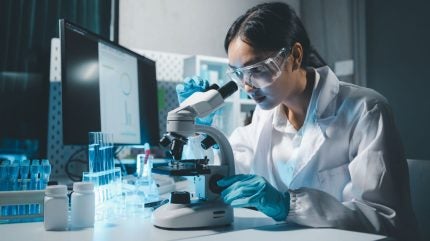

RxCell has announced a US patent for its induced pluripotent stem cells (iPSCs)-based cell therapy approach, a method of generating multiple cellular therapy products from a single source of iPSCs.
Patent 11,946,069 provides RxCell with exclusive rights to use iPSC-derived cells for treating a wide array of diseases.

Discover B2B Marketing That Performs
Combine business intelligence and editorial excellence to reach engaged professionals across 36 leading media platforms.
It details a method for differentiating cells from a clinically compliant iPSC source of a minimum of passage 20 or greater, produced under good manufacturing practice (GMP) compliance.
The process can produce cellular products including astrocytes, dopaminergic neurons, endothelial cells, hepatocytes, mesenchymal cells, retinal epithelium and retinal progenitors.
With this patent, RxCell will strengthen its portfolio of new therapies targeting retinal degenerative diseases such as age-related macular degeneration, and neurodegenerative disorders such as Parkinson’s disease.
The company is also developing liver cell therapies for hepatic diseases and vascular and connective tissue cells for a range of therapeutic applications.

US Tariffs are shifting - will you react or anticipate?
Don’t let policy changes catch you off guard. Stay proactive with real-time data and expert analysis.
By GlobalDataThe methodology covered by the patent will enhance RxCell’s capabilities in developing effective treatments.
By harnessing the potential of advanced iPSC technology, RxCell plans to deliver safe and effective therapeutic solutions for patients globally.
The company aims to support other entities seeking to tackle various health conditions, leveraging the patented technology to achieve these goals.
RxCell said in a statement: “The potential of cell replacement therapy has been evident for many years, yet its feasibility has been constrained by ethical concerns associated with embryonic cells, technological limitations affecting clinical efficacy, and safety concerns.
“The maturation of iPSC technology has now addressed these challenges, enabling the development of novel therapeutic approaches for degenerative conditions.”
Cell & Gene Therapy coverage on Pharmaceutical Technology is supported by Cytiva.
Editorial content is independently produced and follows the highest standards of journalistic integrity. Topic sponsors are not involved in the creation of editorial content.





